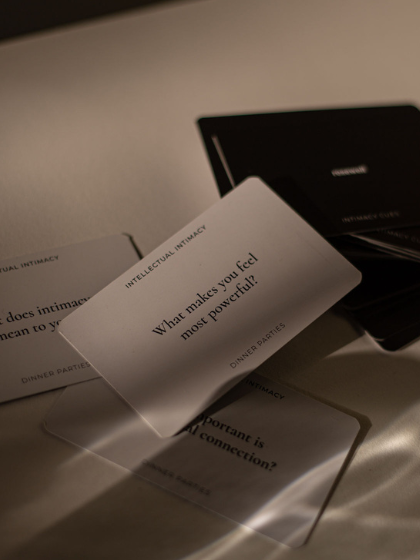This is a long piece, and a vitally important one for sexually active people considering female-based contraceptive options.*
The mental health side-effects of hormonal contraception are well documented, yet not often apparent until they’ve been stopped. It’s common for many young women* to try varied brands, with some citing side-effects that went unidentified for some time, or dismissed entirely. Some brands work better than others and the mental and emotional fluctuations that come with hormonal contraception are very real.
Maintaining and improving sexual health and pleasure are crucial for leading healthy lives across all aspects of life - social, economic, and biological. This is whereby adequate sexual health entails the management of sexual and reproductive systems, with sexual pleasure entailing healthy and positive sexual experiences with oneself and/or others. There are several contraceptive options on the table - hormonal and non-hormonal. However, most of them are used and consumed by females, and for different individual reasons.

Hormonal contraception comes with side-effects (for better or worse), though scientists are not certain that it causes an increase in mental health side-effects, such as mood changes, changes in anxiety levels, and depression. Nevertheless, there are many anecdotes about mental health changes amongst those taking contraceptives.
Stories of difficult experiences with hormonal contraception are often shared amongst friends. Experiences of mood swings, hypersensitivity, heightened anxiety and depressive episodes have been discussed in the rosewell office, too. Individuals use hormonal contraception for different reasons, and it’s easy to find ourselves confused about how to manage our mental health while using hormonal contraception.
Here are a few tips to help tackle this challenge.
—
Consult with your trusted doctor
Contraceptive options
If you feel that a contraceptive isn't working for you, please consult with your trusted doctor. There is only so much Google research you can do before you hit a roadblock in determining what contraceptive option would be better for you. Doctors are able to provide accurate medical advice, given your own personal medical history and conditions. For whatever reason, if you would like to feel assured in your choice after a consultation, consider seeking secondary medical advice in order to fully explore your options.
If you're worried about any side-effects of your contraception, please do not hesitate to consult with a doctor. Your GP can determine a better contraceptive option.
Supplements
There is also a vast world of supplements and vitamins. While they can seem attractive, going through supplements one at a time to find what would work for you may not be as efficient (or potentially as healthy). So, please ask your doctor if any supplements can be taken alongside your contraception. If you already have a supplement in mind, bring it up with the doctor and seek advice on its use and ingredients.
Look into private health insurance
Depending on your choice of contraceptive, you may carry some costs associated with it. This is not only for the purchase of it and the associated procedures, but also for general health management and improvement. There are some insurance providers who offer rebates on contraception, allied health services (such as psychology), and health improvement.
Share your concerns with someone you trust
Talk about what you’re experiencing with a partner, friend, family member or a mental health professional. This could be anyone you trust to listen to you and support you. If you are observing changes in your behaviour or emotions, seeking consolation from someone supportive can feel very reassuring. This could be an impactful experience because it would encourage you to let go of any associated bias, shame, or negative feelings.
Track the fluctuations
Tracking or journaling your emotional and mental experiences could be helpful in recognising trends and correlations. Observing your daily emotions and mental health could improve your ability to recognise change, determine behavioural influences, and it could help you talk about your experiences productively. Some of the methods for tracking could be:
-
Creating a table with emotions, and ticking them 'yes' or 'no' at the end of every day to indicate whether you experienced them or not;
-
Charting a graph throughout the day of your energy highs and lows;
-
Making short notes about emotions that come up;
-
Finding a helpful app; or
-
Coming up with your own system to track.
Establish a routine
When feeling many things or going through the motions, it serves to have a personal ritual that could ground you in the present and help you balance your emotions and mindset. Some of these rituals can entail:
- Listening to a personally curated playlist;
- Writing;
- Having a shower;
- Meditating;
- Visualising something calming;
- Bringing a grounding scent into the the environment;
-
Going for a walk.
The one thing to remember if experiencing mental health side-effects of hormonal contraception is that you are not alone. At rosewell, all of us have been impacted, and there are many who are going through the same things.
Note: *women and female refers to any individual capable of fulfilling female reproductive functions and is not an exhausted representation of gender, which we acknowledge is varied and personal.
Disclaimer: this is an opinion piece, and does not provide medical advice. Please discuss your options and circumstances with a medical professional.
